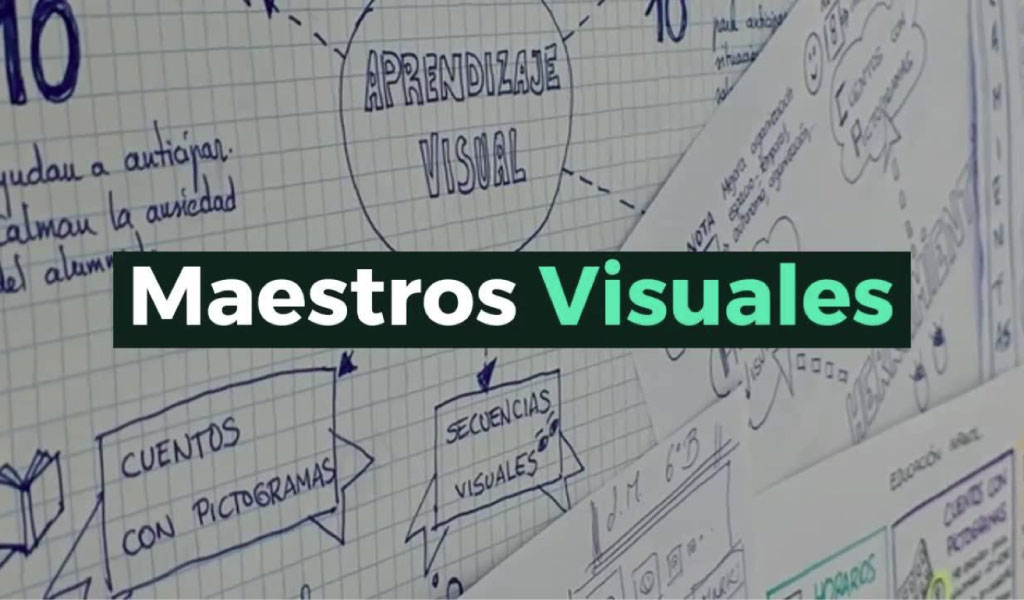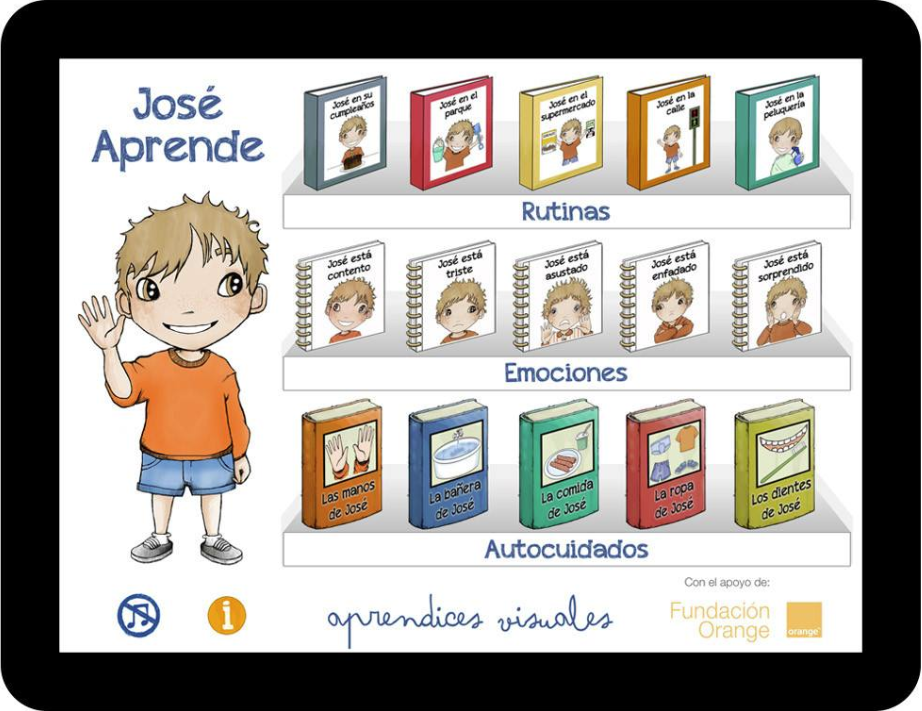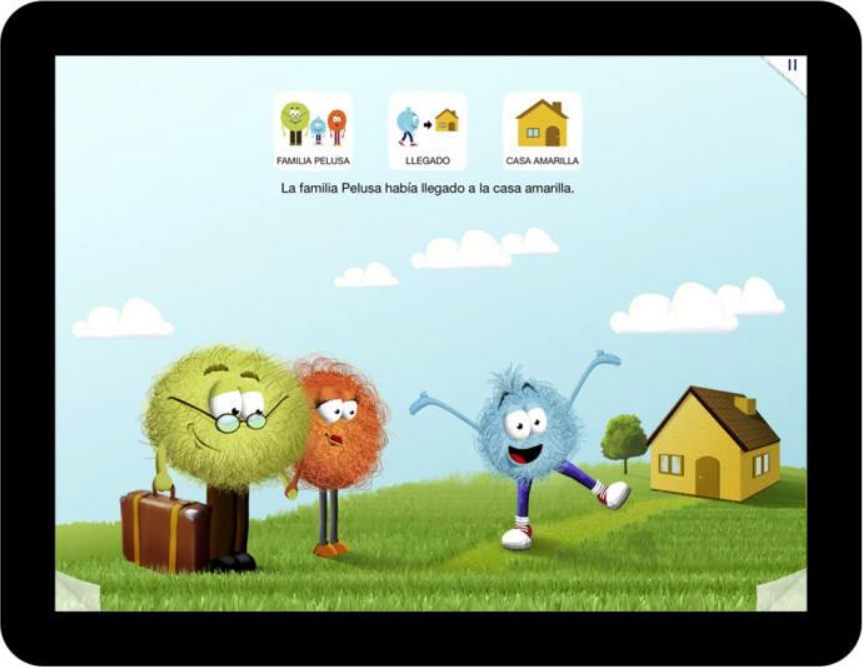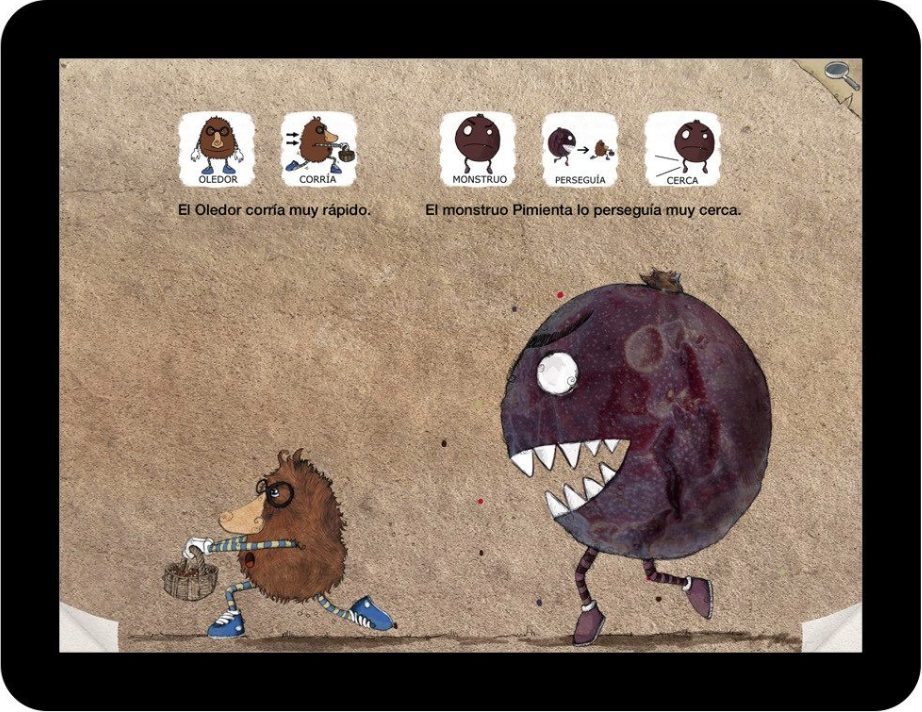Aprendices Visuales
- Original Title: Aprendices Visuales - Visual Learning for children with autism
- Year: 2015
- Award: WSA European Young Innovators
- Category: European Young Innovators
- Producer: Carla Monguió, Amélie Mariage, Yago Gonzalez, Miriam Reyes
- Organisation: Aprendices Visuales
- Country: Spain
- URL: https://www.aprendicesvisuales.org
- Social:
Pictograms are the obvious solution. Two collections of digital books with pictograms aim to reach all different kinds of children. The first one, named “Learn”, is designed for smaller children or those with more difficulties, and the second one, “Enjoy”, is for children with less difficulties. Interactive apps with sounds, interactive images and different reading formats allow children to use Enjoy and Learn on their own.
With 200,000 children with autism in Spain, 650,000 in France and 700,000 in UK, Aprendices Visuales aims to reach them all, by translating their products into the languages of these countries and partnering with associations which work with children with autism. Aprendices Visuales has created free open source products allowing universal access and the possibility for families and professionals to personalize the content, while giving children with autism the chance to develop their potential.
Jury Evaluation:
“Aprendices Visuales is a powerful web based source of collections with pictogram cards in support of psychologists, pedagogues, teachers and experts, parents and relatives who work to develop the social interaction skills and affect the difficulties of the children and youth with Autism Spectrum Disorders. The collections include variety of everyday situations and learning experience, the access to the pictogram cards is free but controlled by the producers creating thus a platform for exchange of good practices in the support of people with autism.” – EYA Grand Jury Report




